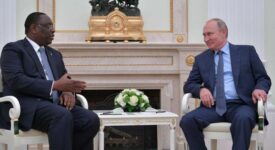Morocco’s King Mohammed VI has played a vital role in the UN-led negotiations aimed at settling the Western Sahara issue, thus helping Morocco reap precious diplomatic points. The King’s policy-making efforts has given Morocco an upper hand in the protracted conflict over the territory by the increasing withdrawals of recognition of the Algerian-based SADR Republic, according to the Spanish paper, La Provincia.
Polisario, a Sahrawi rebel national liberation movement, aiming to put an end to Moroccan presence in the disputed region, has recently suffered a humiliating pull-back from Guerguarat area in the demilitarized buffer strip, thus effectively demonstrating the effectiveness of Morocco’s diplomacy and its respect for the 1991 ceasefire agreement and international law. Rabat has been trying to boost its standing in Africa especially since it re-joined the African Union. Morocco’s political stability and a robust economy are major assets not only in North Africa but also in its African foreign policy conducive to offering south-south cooperation partnerships.
According to the paper La Provincia, the Polisario officials continue to draw fictitious victories to distract attention from the poor conditions and treatment they cause to the civilians that are held hostage in the Tindouf camps in the southwest of the country. The newspaper also condemned the dire living conditions imposed by the Polisario leadership led by a criminal named Brahim Ghali wanted by Spanish justice, emphasizing the urgent need of finding a political and mutually acceptable solution to the dispute over the Western Sahara territory.
The Western Sahara conflict is an ongoing conflict between Morocco and Polisario, which is a continuation of the past insurgency by Polisario against colonial Spain. Today the conflict mostly takes form of unarmed civil campaigns of the Polisario Front and their self-proclaimed SADR state to claim full recognition independence for Western Sahara.







